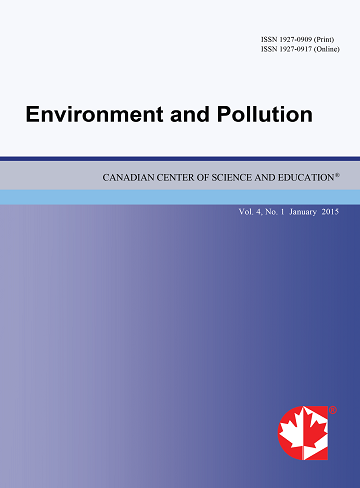Evaluation of Heavy Metals Leakage from Concretes Containing Municipal Wastewater Sludge
- Elham Shirazi
- Reza Marandi
Abstract
Nowadays an important environmental concern is to dispose of municipal wastewater sludge containing toxic heavy metals. These trace elements could be highly hazardous due to their insolubility, high toxicity, bioaccumulation and carcinogenic characterization. One of the latest common ways of sludge disposal is to use in construction materials such as concrete. The aim of this study is to examine leaching of heavy metals from concretes containing sewage sludge. For this purpose, concrete cubes were constructed with different percentages of wastewater sludge (0, 25, 50, 75, 100) replaced with water. Slump and compressive strength of the samples were measured after curing times of 7, 28 and 90 days. Standard test method of NEN 7345 was used to evaluate the possibility of heavy metals leakage out of concrete including Cr+6, Cu+2, Zn+2, Fe+2, Se+2 and Ba+2. Results presented insignificant amount of heavy metals leaking out of concretes according to EPA standards.
- Full Text:
 PDF
PDF
- DOI:10.5539/ep.v1n2p176
Journal Metrics
Index
- Academic Journals Database
- Berkeley Library
- CAB Abstracts
- CAS (American Chemical Society)
- CNKI Scholar
- COPAC
- CrossRef
- DTU Library
- Elektronische Zeitschriftenbibliothek (EZB)
- EuroPub Database
- Excellence in Research for Australia (ERA)
- Genamics JournalSeek
- Google Scholar
- Harvard Library
- Infotrieve
- Jisc Library Hub Discover
- JournalGuide
- JournalTOCs
- LOCKSS
- Max Planck Institutes
- Mir@bel
- PKP Open Archives Harvester
- Pollution Abstracts
- Publons
- Pubmed journal list
- ROAD
- Scilit
- SHERPA/RoMEO
- Standard Periodical Directory
- Stanford Libraries
- UCR Library
- Ulrich's
- UniCat
- Universe Digital Library
- UoS Library
- WorldCat
- Zeitschriften Daten Bank (ZDB)
Contact
- Albert JohnEditorial Assistant
- ep@ccsenet.org
